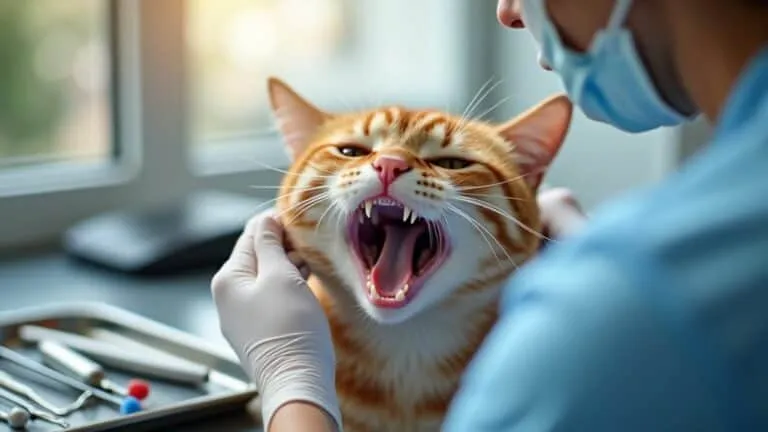The Best Fluffy Pancakes recipe you will fall in love with. Full of tips and tricks to help you make the best pancakes.

The issue of pet theft has gained significant attention in recent years, prompting a proposed legislation to criminalize the theft of cats and dogs in England and Northern Ireland. With the government now throwing its support behind this initiative, the debate surrounding the matter has intensified.
As the emotional attachment between owners and their pets continues to grow, the need to address the alarming rise in pet theft becomes even more crucial. This article delves into the proposed legislation, the background and criticism surrounding it, the impact on pet owners and their mental well-being, and the potential challenges and next steps in the fight against pet theft.
Stay tuned to discover the intricate details and potential solutions to this pressing issue.
Key Takeaways
- The government in England and Northern Ireland is expected to support making stealing cats and dogs a criminal offense.
- A bill is being debated in the Commons to create an offense of pet abduction, with convicted offenders facing fines or up to five years in prison.
- The decision to address pet theft was prompted by concerns about dog theft during the Covid pandemic, and there has been emphasis on the emotional distress caused by pet theft and the need to bring offenders to justice.
- Pet Theft Awareness, a campaign group, advocates for recognizing pets as valued living possessions and imposing jail sentences for pet theft, as well as compulsory scanning to increase the chances of reuniting stolen or missing pets with their owners.
Proposed Legislation and Current Situation
The proposed legislation to criminalize cat and dog theft in England and Northern Ireland is currently being debated in the Commons. The aim of this legislation is to address the increasing concern over pet abduction and the need for stricter penalties for offenders.
Pet theft statistics reveal a worrying trend. According to a report by Pet Theft Awareness, police-recorded cat theft has increased by 40% in 2021 compared to the previous year. It has also quadrupled since 2015. However, it is important to note that the actual figures are likely higher due to variations in police forces' willingness to record the crime.
The emotional impact of pet theft cannot be understated. It causes profound distress and anguish to both pets and their owners. Losing a pet can lead to feelings of grief, as owners are left not knowing what happened to their beloved companions.
The proposed legislation seeks to recognize the importance of pets as valued living possessions. It aims to impose harsher penalties to deter potential offenders. By criminalizing cat and dog theft, the hope is that pet owners will feel more protected and potential thieves will think twice before committing such a crime.
Background and Criticism
Pet theft has gained significant attention and prompted proposed legislation in England and Northern Ireland due to concerns about the increasing number of cases and the emotional distress caused to both pets and their owners.
The decision to address pet theft was prompted by concerns about dog theft during the Covid pandemic. Then-home secretary Priti Patel emphasized the emotional distress caused by pet theft and the need to bring the offenders to justice.
Conservative MP Anna Firth, with the introduction of the Pet Abduction Bill, aims to tackle the issue. Low prosecution rates make pet theft a low-risk, high-reward crime, according to Firth. This highlights the need for stronger legislation and penalties to deter potential offenders and protect pets and their owners from the emotional trauma caused by such crimes.
Impact and Advocacy
The increase in cases of pet theft has sparked advocacy for stronger legislation and penalties to address the emotional trauma caused to both pets and their owners.
Pet Theft Awareness, a campaign group, has been at the forefront of this advocacy, calling for compulsory scanning to increase the chances of reuniting stolen or missing pets with their owners. They argue that low prosecution rates make pet theft a low-risk, high-reward crime.
According to a report by Pet Theft Awareness, police-recorded cat theft increased by 40% in 2021 compared to the previous year, and has quadrupled since 2015. However, the actual figures are likely higher due to variations in police forces' willingness to record the crime.
The recognition of pets as valued living possessions and the imposition of jail sentences for pet theft are key goals of the advocacy efforts.
Inclusion of Cats in Legislation
The recognition of cats as valuable companions and the emotional connection owners have with them underscores the importance of extending any new criminal offence to cover cats in the proposed legislation against pet theft. Cats hold a significant place in many households, and their theft can cause immense distress to both the owners and the cats themselves. Recognizing the emotional value of cats and including them in the legislation would address the growing concern of cat theft.
Increased protection: Extending the legislation to cover cats would provide them with the same level of protection as dogs, acknowledging their importance as cherished pets.
Deterrence: Inclusion of cats in legislation would act as a deterrent to potential criminals, reducing the risk of them targeting cats for theft.
Consistency: Recognizing the emotional value of cats aligns with the recognition of emotional value for dogs, ensuring consistency in the legal framework.
Preventing displacement: Excluding cats from the legislation might lead criminals to shift their focus towards targeting cats, resulting in an increase in cat theft cases.
Public Support and Mental Well-Being
Support for legislation against pet theft and its impact on mental well-being has gained significant traction among the public in the UK, highlighting the urgent need to protect both pets and their owners from the traumatic experience of pet theft.
Research consistently shows that owning a pet has numerous benefits for people's mental well-being. Pets provide companionship, reduce stress, and promote feelings of happiness and purpose.
However, the theft of a beloved pet can cause immense emotional distress for owners. The loss of a pet can lead to feelings of grief, anxiety, and depression. It can also create a sense of fear and vulnerability, as owners worry about the safety and well-being of their stolen pet.
The proposed legislation aims to address this issue by criminalizing pet theft, which would not only serve as a deterrent but also provide justice and support for affected pet owners. By recognizing the impact on pet owners' mental well-being, the government acknowledges the importance of protecting the emotional bond between pets and their owners.
Potential Challenges and Next Steps
While the proposed legislation to criminalize pet theft in England and Northern Ireland has gained significant public support, there are potential challenges and next steps that need to be considered. These include:
- Challenges in enforcement: Implementing and enforcing laws against pet theft may pose several challenges. Law enforcement agencies may need additional resources and training to effectively investigate and prosecute pet theft cases. Cooperation between different agencies, such as the police, animal welfare organizations, and local authorities, will also be crucial to tackle this issue comprehensively.
- Pet theft prevention measures: Alongside criminalizing pet theft, it is essential to focus on preventative measures. This can include raising awareness about pet theft, promoting responsible pet ownership, and implementing security measures such as microchipping and compulsory scanning. Collaboration between pet owners, veterinary professionals, and the government is necessary to develop and implement these preventive measures effectively.
- Education and community engagement: Educating the public about the seriousness of pet theft and the emotional impact it has on both pets and their owners is crucial. Community engagement initiatives can help foster a sense of collective responsibility in safeguarding pets and reporting suspicious activities. This can involve working with schools, local community groups, and social media campaigns to raise awareness and encourage vigilance.
- Monitoring and evaluation: It will be important to monitor the effectiveness of the new legislation and pet theft prevention measures. Regular evaluation and feedback from law enforcement agencies, animal welfare organizations, and the public can help identify any shortcomings and make necessary adjustments to improve the outcomes.
Addressing these challenges and taking the next steps towards criminalizing pet theft will require a comprehensive and collaborative approach involving the government, law enforcement agencies, animal welfare organizations, and the public. By working together, it is possible to create a safer environment for pets and their owners and deter potential thieves from engaging in this criminal activity.
Conclusion and Call to Action
Considering the potential challenges and next steps in addressing pet theft, it is imperative to develop a comprehensive and collaborative approach that encompasses enforcement, prevention, education, and monitoring.
Stricter penalties for pet theft play a vital role in deterring potential offenders and ensuring justice for victims. By imposing harsher punishments, such as fines and imprisonment, the government can send a clear message that pet theft is a serious crime that will not be tolerated. However, the effectiveness of these penalties relies heavily on the enforcement of pet theft laws. Law enforcement agencies must be adequately trained and equipped to investigate and prosecute cases of pet theft.
Additionally, public awareness and education campaigns can help raise awareness about the issue, promote responsible pet ownership, and empower individuals to take preventive measures.
Conclusion
In conclusion, the government's support for criminalizing cat and dog theft in England and Northern Ireland signifies a significant step towards addressing the increasing concern of pet abduction.
The proposed legislation aims to recognize the emotional value of pets and improve prosecution rates for offenders.
With nearly half of households in the UK owning a pet, this measure is widely supported as a means to protect both pets and their owners.
By acknowledging the importance of pets as valued living possessions, this legislation seeks to create a safer environment for all.








